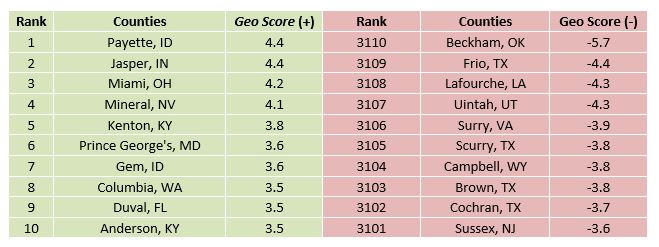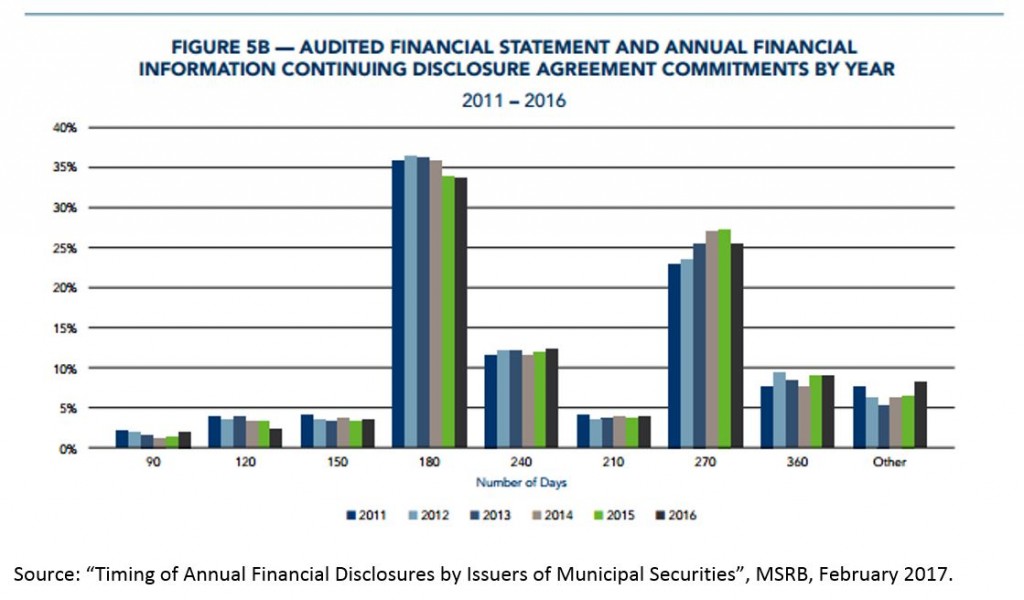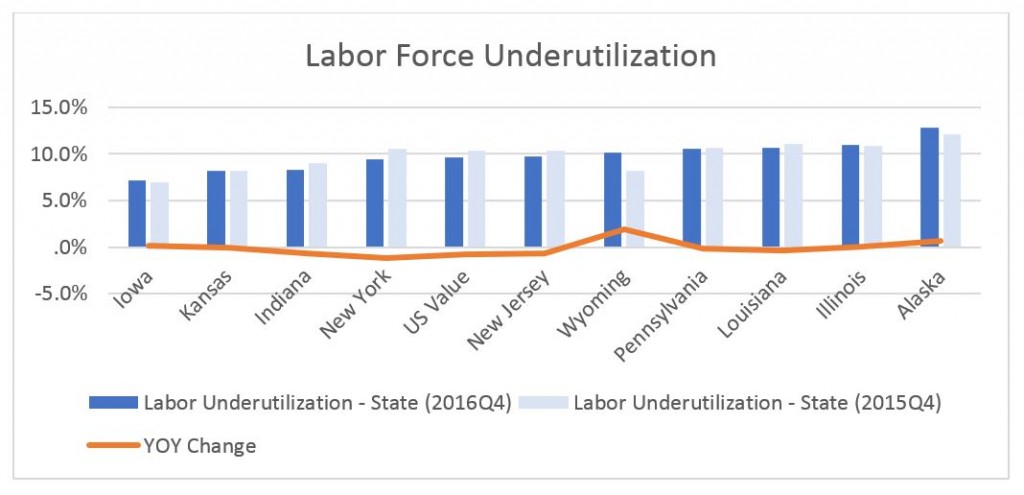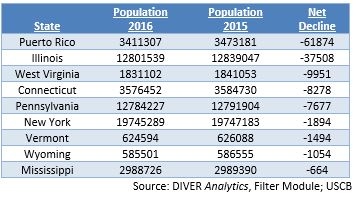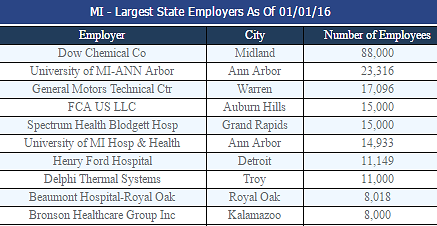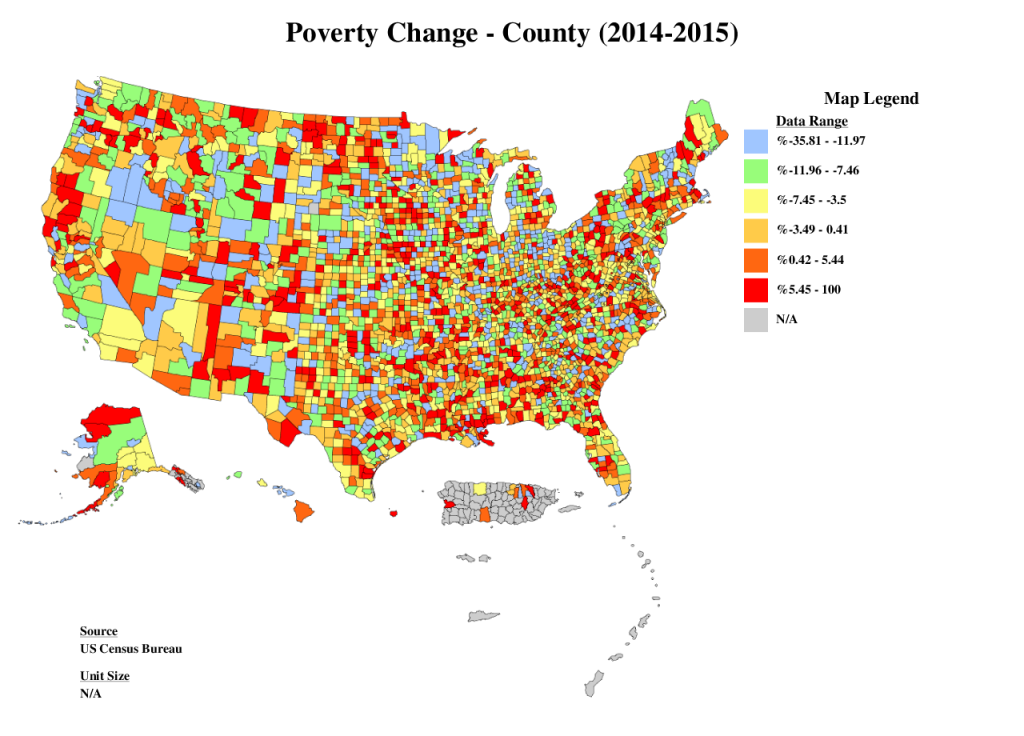This week we bring you the February 2017 DIVER Geo Scores and, in case you missed it, some interesting news and a quote around the Labor Department’s Fiduciary Rule. Last month, a reader requested that we provide, in addition to the locations with the greatest moves, the top and bottom States, counties and cities. Given our limited space, we refer you to our website for that data.
A Terrible, Horrible, No Good Rule? And, States On The Move
Topics: Geo Scores: The Changing Economic Health of US Mun, Legislation, Politics and the Bond Market, Government and Industry Regulatory News, Commentary
Timing is Everything (or not much at all) and Oroville Dam Obligors
This week we look at the recently released MSRB report regarding disclosure filings and offer some facts and observations. We also look at those obligors that might be impacted should the Oroville Dam fail.
Topics: Geography, Energy and Climate, Legislation, Politics and the Bond Market, Government and Industry Regulatory News, Commentary
This week we bring you the January 2017 DIVER Geo Scores. DIVER Geo Scores are designed to quickly communicate the overall economic health of a selected geographic area on a scale of 0 to 10. The Geo Score reflects the relative economic well-being of the location and is available for all States, counties, and approximately 350 of the largest cities. Calculations are released monthly and are based on multiple, meaningful economic and demographic data from the employment, income and housing categories.
Topics: Geo Scores: The Changing Economic Health of US Mun, Commentary
Employment and Population: Real or Alternative Facts? You Decide
With so much attention on job growth from both the outgoing and new administrations, we thought it would be interesting to take a look at what the data, through the end of 2016, tells us about the employment situation relative to our population. Unlike politicians, we do not seek to cast credit or blame, nor do we seek to see if one party or the other is offering “alternative facts.” Our objective is to offer some observations that can be relevant to those focused on the municipal bond market, and how changes to our population and employment situation may impact municipal credits. As for conclusions, as with our politicians, it is up to you to decide which data points and combinations thereof provide you with the “real” vs. “alternative” facts. I do offer some of my perspective throughout. Due to the number of tables, this commentary will print a bit longer than usual.
Topics: Financial and Demographic Trends Affecting the Mun, Legislation, Politics and the Bond Market, Commentary
This week we look at how State GDP (and therefore employment and tax receipts) may be impacted should certain campaign promises be kept. As we prepare for the inauguration of President-Elect Donald Trump, thankfully we have been spared “fighting in the streets.”[1] However, municipal market participants are bracing for uncertainty as the Trump administration and the newly elected Congress begin the process of implementing policy ideas promised during the campaign such as repealing the Affordable Care Act and increasing infrastructure spending.
Topics: Legislation, Politics and the Bond Market, Commentary
MCDC Initiative Ends (But Focus on Underwriters and Issuers Does Not) and December Geo Scores
This week we start with a review of the SEC’s announcement ending the MCDC initiative, a possible SEC focal point for 2017, and bring you the December 2016 DIVER Geo Scores. DIVER Geo Scores are designed to quickly communicate the overall economic health of a selected geographic area on a scale of 0 to 10 and reflect the relative economic well-being of all States, counties, and approximately 350 of the largest cities. Calculations are released monthly and are based on multiple, meaningful economic and demographic data from the employment, income and housing categories.
Topics: Geo Scores: The Changing Economic Health of US Mun, Government and Industry Regulatory News, Commentary
